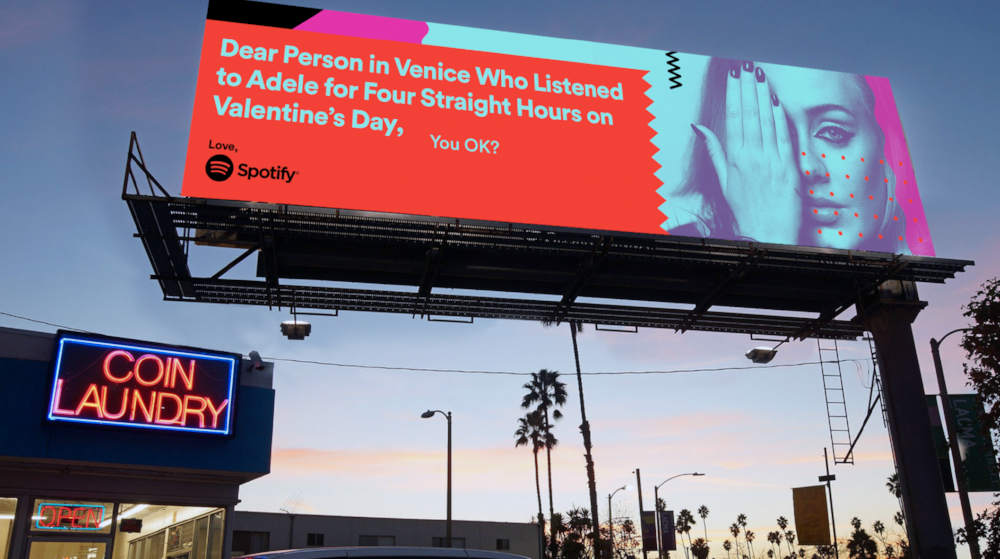Spotify is one of the apps that plays a super important role in my daily life and I’ll be honest, I’d find it very hard to give it up if I had to. It’s also one of the only apps which I’ve purchased the premium version of, simply because it’s super convenient and allows me to listen to music wherever and whenever, organize my music, and customize my playlists. How I got hooked to their Premium is actually a funny story. I saw a limited summer offer about having 3 months of Spotify Premium for only a dollar. And just like that – I was hooked. My life would never be the same. I kept paying for it afterwards, of course. Obviously, a very cheap marketing strategy, but it worked.
Where I was going with that is that I think Spotify does a great job targeting consumers through personalized marketing. Their ads and offers reach you directly through referring to yours and other people’s listening habits, building a very personal relationship. In order to do that however they do need to collect a lot of data from their users.
What I noticed while reading Spotify’s privacy policy is that they put a lot of emphasis on transparency. (Thanks for stating the obvious, Simona, isn’t that the point of privacy statements?!!?!?) No, some of them are actually really misleading and puzzle you with sophisticated words until you lose any will to read them. However, Spotify’s one is not like that. It’s really accessible and simple to understand. It also emphasizes all the rights that consumers have with regards to how their personal data is collected and used, such as the Right of Access, the Right to Object, and the Right not to be subject to Automated Decision-making. Spotify allows its users to practice those rights.
In their privacy policy Spotify also informs consumers of how exactly their ‘data mining’ works: through collecting personal data, payment data, third-party data (with consent!) but most of all through monitoring the use of their services and looking for behaviour patterns. They also talk about the reasons why they need the data: to improve the experience, to understand how the consumer interacts with the service, to communicate other offers, and of course, for marketing and research. Spotify shares consumer data with their partners and other countries, however explicitly asks for full consent before doing so.
The general feeling I got from the privacy policy is that Spotify is not as pushy and aggressive with how they collect data. Also, there are cases when the end justifies the means and as long as it’s meant to provide better service and benefit the society, data collection is fine. That applies to Spotify quite well. They want to personalize the experience and their consumers know that. “We need to understand your listening habits so we can deliver an exceptional and personalized service specifically for you.”
In addition, there are interesting statistical outcomes of their data collection, such as playlists made specifically for you, infographics showing what you’ve listened to the most, ‘discover’ playlists, and global charts. This also reminded me of the emotional contagion practiced by Facebook that we talked about in class. Spotify can just as well tell how its users are feeling depending on what they’re listening to and their ads reflect that. (see picture below) They’re using people’s most listened songs to make public generalizations about their emotional states. Weird flex and slightly ethically dubious, yet it makes a statement. They’ve even gotten into designing their billboard ads like memes derived from people’s playlists! Appealing to popular culture alright.
Source: https://www.spotify.com/is/legal/privacy-policy/
